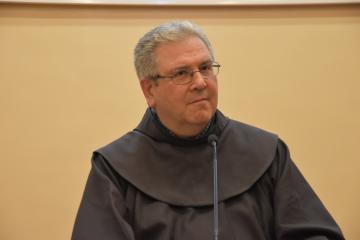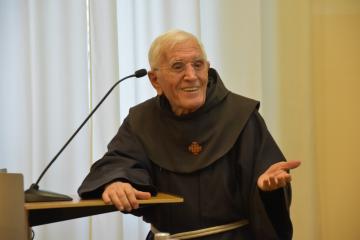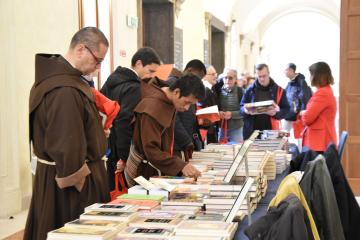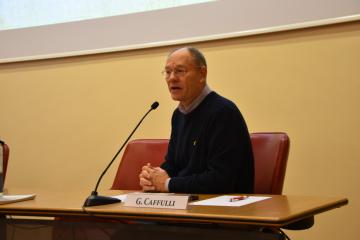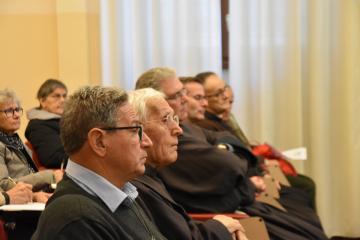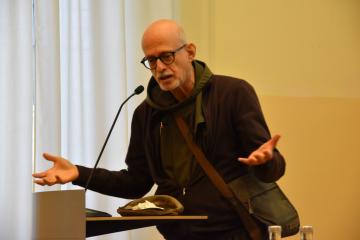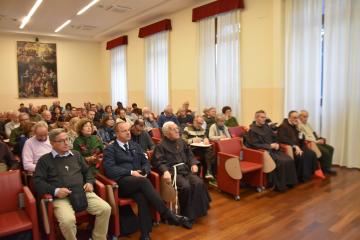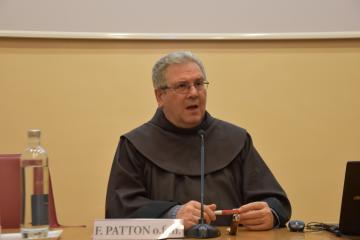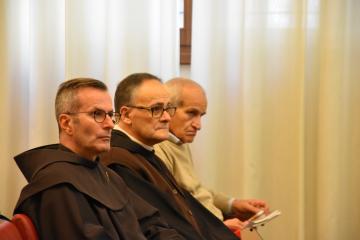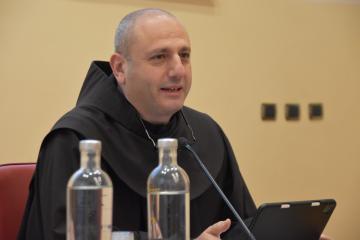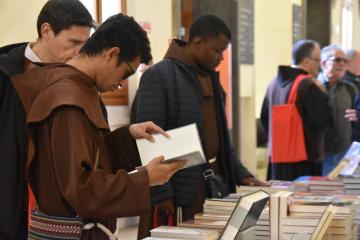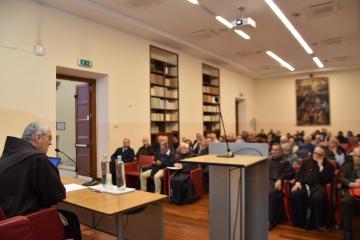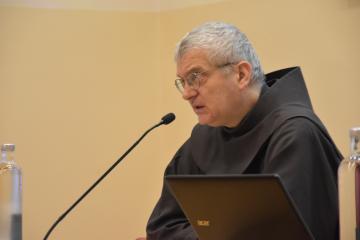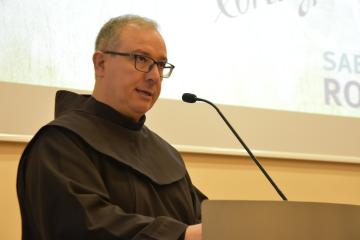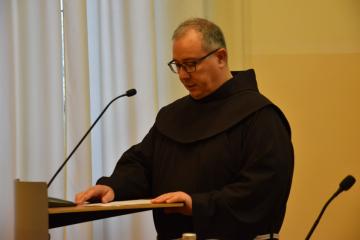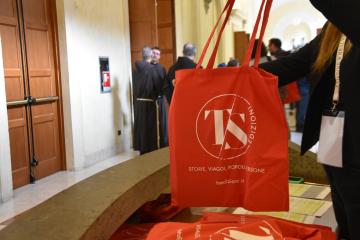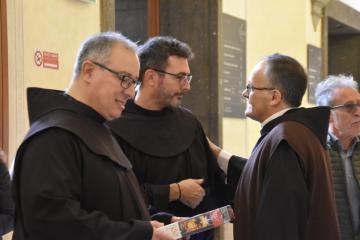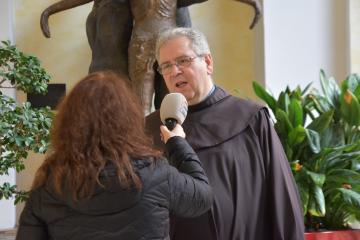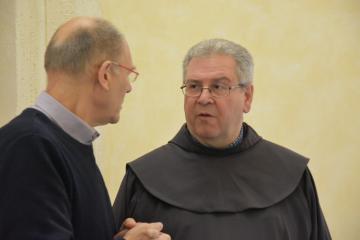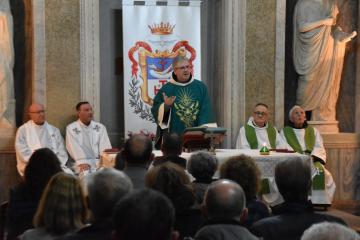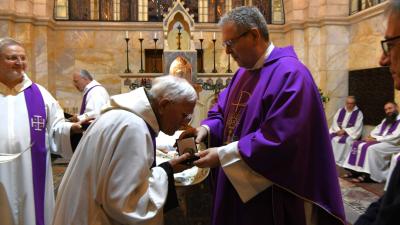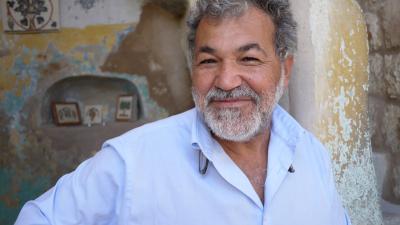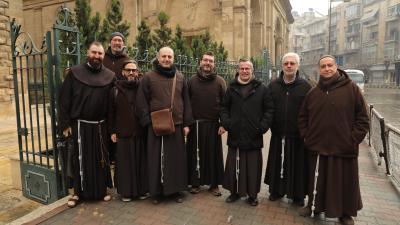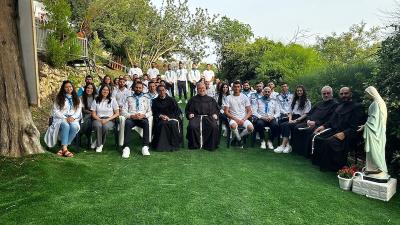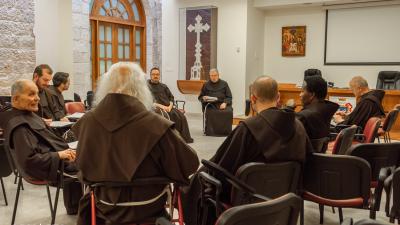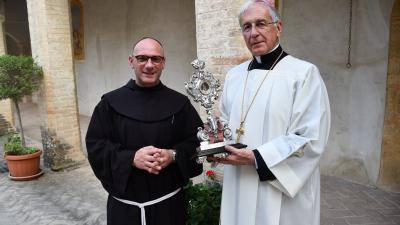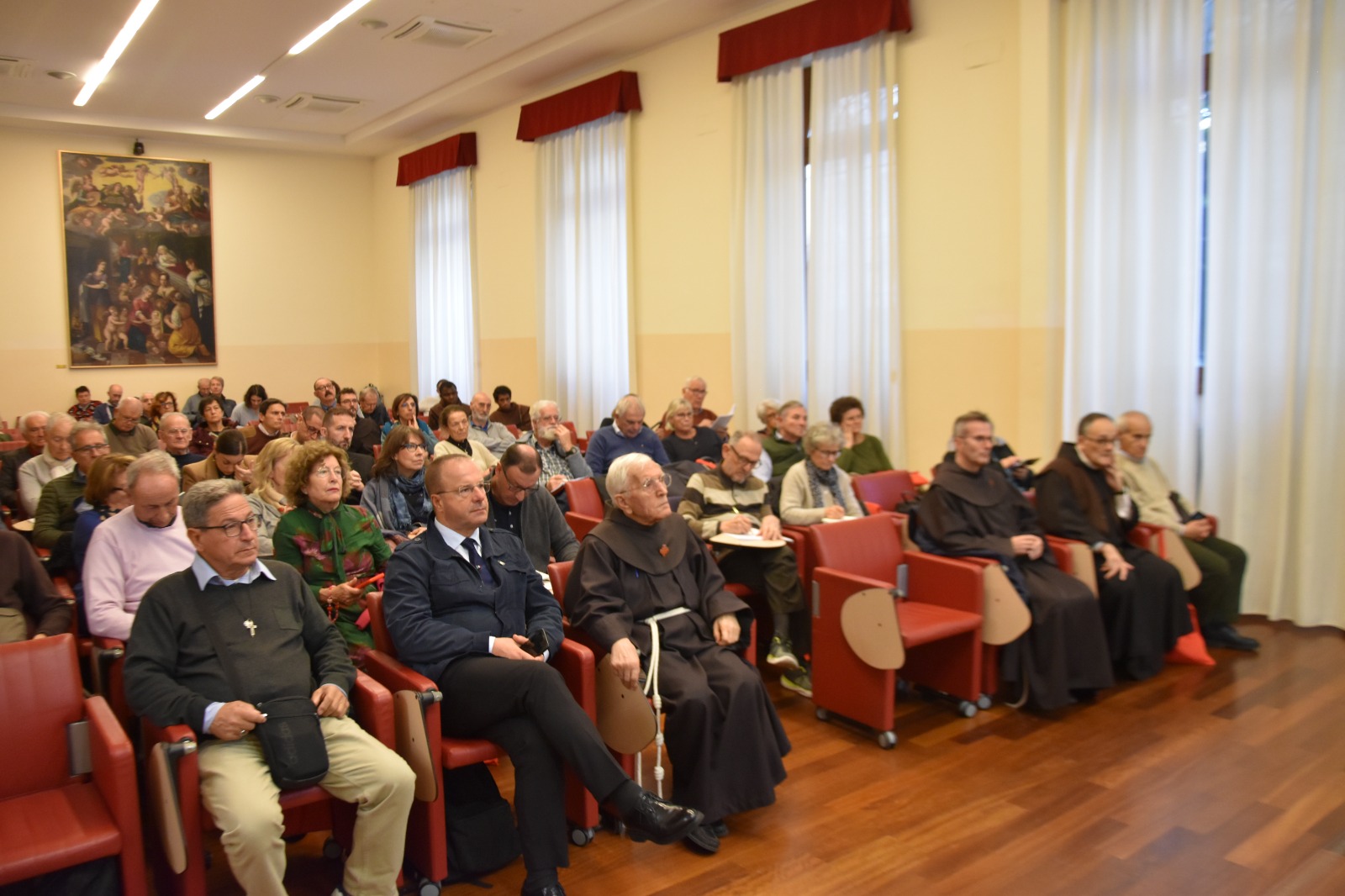
“We continue to keep our heart free of hatred”: this is the message that the Custos of the Holy Land, fr. Francesco Patton, took to the volunteers during the XVI Day of the Associations of the Holy Land, which was held on Saturday 11 November in the Auditorium Antonianum in Rome. The meeting, which is held every year, brought together the associations of voluntary work that support the projects in the Holy Land.
Being capable of recognizing the suffering of others
“From the very beginning, the Church said strong words of hope, although faced by the terrible numbers of the civilians killed,” the Custos emphasized, rejecting the logic of polarized sentiments which seems to dominate the public debate in these dramatic times. “We cannot allow ourselves to be “fans,” but we must be people who are capable of recogizing the suffering of others.”

In a dialogue with Giuseppe Caffulli, editor of the magazine Terrasanta, he took on various aspects of the conflict between Israel and Hamas which broke out again on 7, starting from the testimony of faith that the Christians in Gaza, Catholics and Greek Orthodox together, are giving. In these few weeks, they have felt that the church is their home, and to all effects it is. In his speech, the Custos then referred to the situation of the Christians in Bethlehem and in the West Bank, where the emergency seems to bring so many back to the situation of isolation and economic difficulties they had during the pandemic.
Bringing attention back to Syria
The day brought together about one hundred volunteers and supporters together with five Commissars in a meeting which this year had been scheduled, before 7 October, to bring attention back to the dramas of Syria which is increasingly forgotten and which, naturally, has extended the view to the Israeli-Palestinian conflict.
Opening the meeting, fr. Pietro Messa shared his reflection on charity from the Franciscan Rule, of which the 800th anniversary is celebrated this November. Fr. Pietro, who teaches History of Franciscanism at the Pontificia Università Antonianum, helped to focus on which “mercy” means for Francis of Assisi. “More than the poor man, Francis ought to be called the merciful,” he observed, offering a spiritual reading, based on rigorous historical research, which marked the start of a day particularly rich in information on the charities of Franciscan inspiration I and on the spirit that animates them. Attention to the tragedies in Syria and the Holy Land is not distinguished by a continuous vision of signs of good and hope.

The commitment of the Franciscans
In the morning, Fr. Bahjat Karakash, friar minor from Aleppo and parish priest of the Catholic community, brought the testimony of the commitment of the Franciscans in Syria. He gave some information on the numerous activities of aid, for youth and for the elderly, and for post-earthquake reconstruction. But above all he expressed the meaning of the presence of the Christians in the Land, from which they would all like to leave. “A presence of peace, dialogue and education, which if it is no longer there, puts the whole society at risk,” he said. Amongst the countless material needs, Fra Bahjat recalled how education for young people and the formation for encounter are fundamental to give a future to Syria. This is why he illustrated the work and the results in the poorest part of Aleppo, where the Syria/Aleppo: A Name and a Future project is continuing to give results.
Focus on the emergency in Syria

The forgotten childhood of Syria, as well as the aid to the orphans in the Muslim neighbourhoods most devastated by the war, was the topic of a panel conducted in the afternoon by Luca Geronico, a journalist with Avvenire, and Stefano Ravagnan, diplomatic representative for Syria of the Ministry of Foreign Affairs, illustrated the dramatic situation of the prison camp of al-Hol, in the north-east of the country, where thousands of children and youngsters, the children of jihadists, need to find solutions of returning home, reinsertion and prospects for a different life. Danilo Feliciangeli, from the Middle East desk of the Italian Caritas, told of the success of some projects which in Syria have brought hundreds of young people together through artistic formation, fostering paths for reconciliation. And the urgency of education for the small Syrians, refugees in Lebanon, was highlighted by Maria Quinto who for the Community of Sant’Egidio look after the project of humanitarian corridors in favour of Syrian families.
A plurality of experiences, ideas and results, linked to the most public the 20923 of the richest days in several tears. Volunteers who, as usual, were able to meet, exchange experiences and exchange ideas, impressions and experiences, expressed themselves to be present, informed and ready to put attention to people at the centre . This is the essential condition to “rehumanize” the other, as has been done in Aleppo East, and also that it is essential to try and seek solutions for peace in the whole throughout the Middle East.
Francesco Pistocchini
Foto Crediti © Paolo Salvaggio / Fondazione Terra Santa


